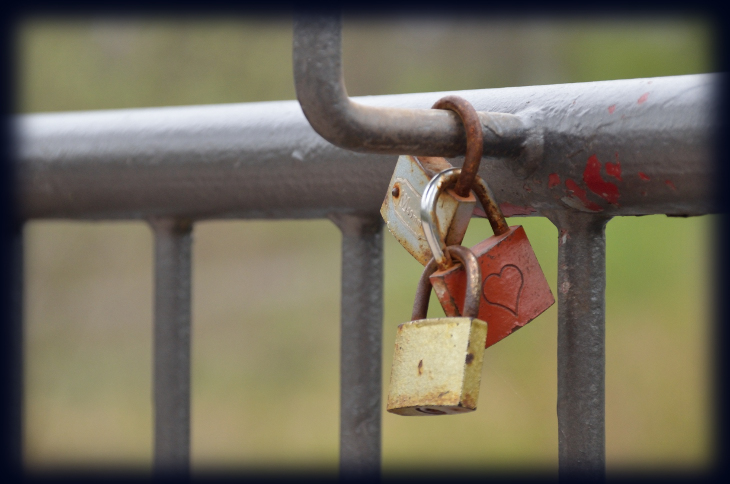You can see Life, the Universe and Everything under various lenses. How you see your world will have an enormous impact on how you feel and act, and how your life “pans” out. One such basic set of lenses, possibly one of the most fundamental, that can be applied is:
| «legalism»
an inward focus on laws, regulations, |
vs | «relationism»
an outward focus on relationships, |
Roughly this split would equate to judgement vs grace. Like many good distinctions, it is never plainly one or the other. Our Creator is the great Judge — with mercy. Yes there have to be rules, anarchy is ungodly. However, humans get easily carried away by legalism, see the example of the Pharisees, ending up in an untoward zone of holier-than-though separation, entanglement and contradictions. The main purpose for creating humanity, as i understand from the whole of scripture, is for our Creator to have a counterpart to love, to bless, to engage with, to spar with, to be angry with if need be, to raise like a child onto maturity, and ultimately to spend the rest of the ages with it, with us, in harmony.
Thus only as a community are we fulfilling our Creator’s will, not as individuals. We will all stand before the throne of judgement individually, but even there our relations: how we were affected by others, and whom we affected with our actions, and how, will be the main topics to judge on.
| The legalist will pull the relationships over into the legal framework: yes you can love/heal/support/forgive this person, but only if it fits within the rulebook. | The relationist, inversely, will pull the rules over into relationships: yes you can apply these laws but only if they are conducive to the wellbeing of the individuals concerned and their relationships. |
Now of course as humans we sometimes fool yourself, thinking we are bending the rules in favour of a relationship, while in fact we are harming the other person and the relationship through a lack of dependability and consistency, long term. Children need firm rules, they need to know how to behave and what is expected of them, to be safe and happy. Nevertheless, when we approach our Creator only with the question “so what do you expect from me?”, i.e. asking him, in effect, “where is your rulebook?” then we are really missing Herm. It is horrendous to behold when children approach their worldly parents only from that angle. No, it is relationship that our Mather in the heavens wants, and the rules are there to enable this relationship to flourish! So it is relationship first, rules second. If this makes you cringe, you may be a legalist. Communion with Him only works on His terms – He is the potter, we are the clay. His rules are there for us to be well and tune into His rhythms of life. Take Shabat – the Lord did not have to rest on the seventh day as he would have been fatigued by his colossal creation efforts. No He wanted to rest in order to spend time with His creation, sit back and enjoy!
Yeshua confirms that this Shabat is for mankind, not mankind for the Shabat (Luke 14:5, Mark 2:27). I.e. humanity was not created for obeying rules. It is, however, created to function and enjoy life within certain rules. Much of the law in the Torah is about rituals: the feasts, full of meaning, symbolism and significance. And our Creator positively commands us to be joyful at these festivals! Just in Deuteronomy, see Deut 12:18, Deut 14:26, Deut 16:11, Deut 16:14-15, Deut 26:11, Deut 27:7. Of course this enjoyment is tied into living in obedience to Herm, as only this will allow us to be joyful, while everything else are cheap thrills and ephemeral pleasures at the cost of later suffering and remorse.
The communion with our Creator will be eternal. Some rules may be eternal too, like the rhythms of creation; other rules are time-bound, dependent on the age they were given in and for. Some of the rituals may persist into permanence, or at least into the next age(s), as celebrations, reminders and occasions for joy and communion.
Relationships may include an element of helping each other live within the rules of our design, and definitely include helping one another celebrate and enjoy life. But when we think of laws, we tend to think of restrictions, wrongs, faults, of judgementally seeking specks of sawdust in fellow humans’ eyes. (Mt 7:1-5)
So, on the whole, it seems to me that it is better to build bridges of relationships rather than walls of additional laws.
var refTagger = {
settings: {
bibleVersion: “NASB”,
}
};
(function(d, t) {
var g = d.createElement(t), s = d.getElementsByTagName(t)[0];
g.src = “//api.reftagger.com/v2/RefTagger.js”;
s.parentNode.insertBefore(g, s);
}(document, “script”));


The Bible contains historical accounts and rules (laws or instructions = the Mitzvot). Anybody trying to read rules from the historical accounts will find hermself in murky territory. The patriarchs and heroes of the Scriptures erred and went astray and did some pretty foolish things, lying, cheating, scheming — and God remained in control and worked through it all, making Hers walk with Hers humanity more colourful, more surreal and more biographical by the day. Shall we sin more so that grace may abound, thereby challenging our Creator to come up with creative ways of rescuing us from the entanglements we deliberately get ourselves into? Let it not be! But we are sinners and remain sinners even when converted, and will implement Hers will through our imperfections. We should focus on this — the implementation of Hers will that is, and less on the imperfections or the manifold reasons why it’s implausible that we are actually good.